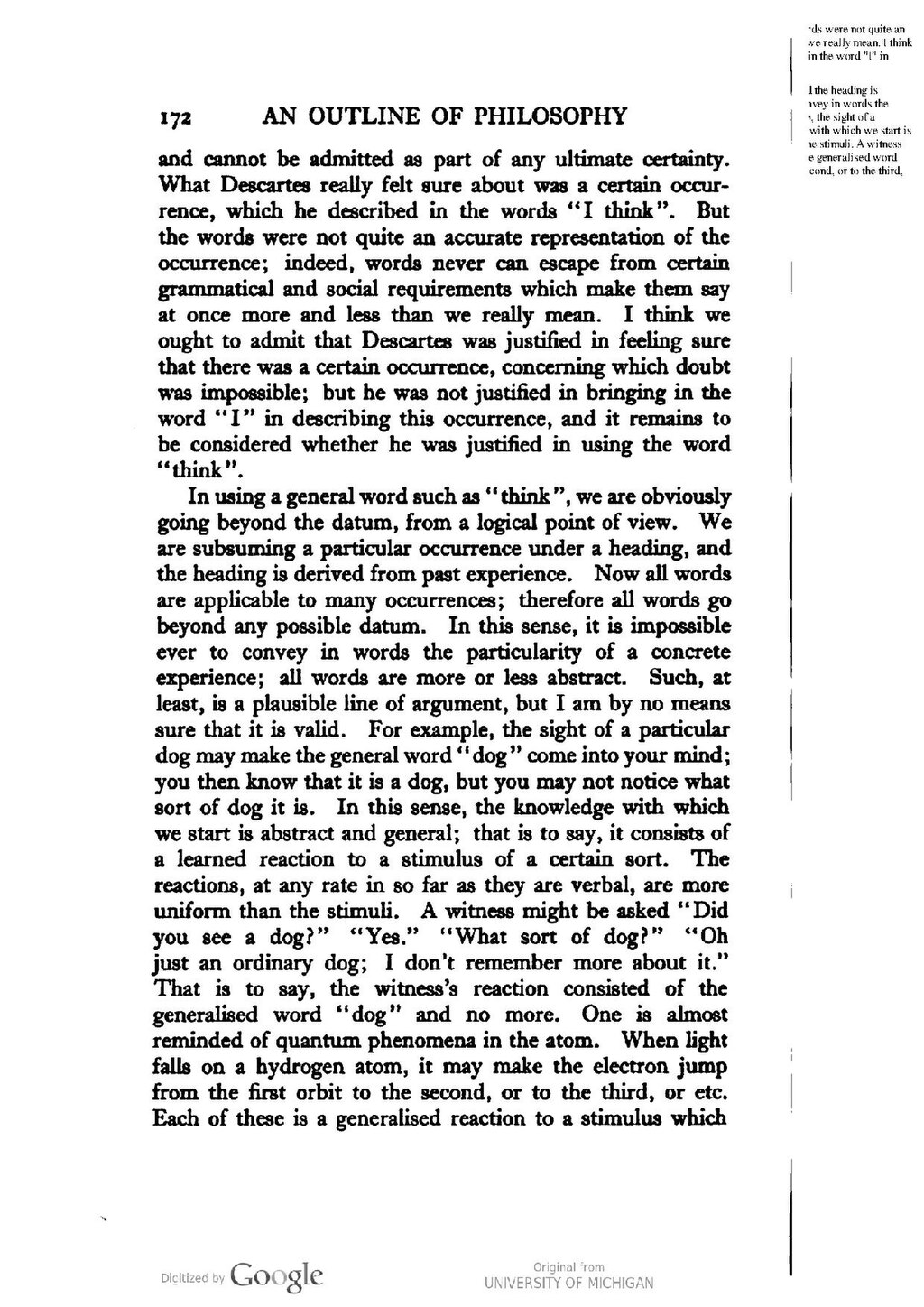and cannot be admitted as part of any ultimate certainty. What Descartes really felt sure about was a certain occurrence, which he described in the words "I think". But the words were not quite an accurate representation of the occurrence; indeed, words never can escape from certain grammatical and social requirements which make them say at once more and less than we really mean. I think we ought to admit that Descartes was justified in feeling sure that there was a certain occurrence, concerning which doubt was impossible; but he was not justified in bringing in the word "I" in describing this occurrence, and it remains to be considered whether he was justified in using the word "think".
In using a general word such as "think", we are obviously going beyond the datum, from a logical point of view. We are subsuming a particular occurrence under a heading, and the heading is derived from past experience. Now all words are applicable to many occurrences; therefore all words go beyond any possible datum. In this sense, it is impossible ever to convey in words the particularity of a concrete experience; all words are more or less abstract. Such, at least, is a plausible line of argument, but I am by no means sure that it is valid. For example, the sight of a particular dog may make the general word "dog" come into your mind; you then know that it is a dog, but you may not notice what sort of dog it is. In this sense, the knowledge with which we start is abstract and general; that is to say, it consists of a learned reaction to a stimulus of a certain sort. The reactions, at any rate in so far as they are verbal, are more uniform than the stimuli. A witness might be asked "Did you see a dog?" "Yes." "What sort of dog?" "Oh just an ordinary dog; I don't remember more about it." That is to say, the witness's reaction consisted of the generalised word "dog" and no more. One is almost reminded of quantum phenomena in the atom. When light falls on a hydrogen atom, it may make the electron jump from the first orbit to the second, or to the third, or etc. Each of these is a generalised reaction to a stimulus which
